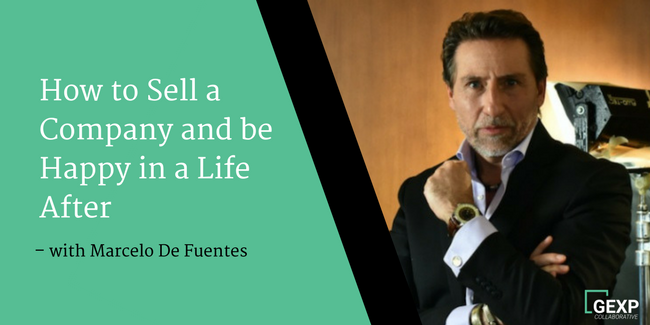Have you ever wondered how you can avoid paying taxes when you sell your business? Today we are going to be talking to Brian Forcier, whose years of experience at Titanium Partners and also as a real estate investor have taught him how to defer taxes and make selling your business possible. He does a great job explaining the 1031 exchange. Will it fit into your exit plan? Find out by listening!
You know you’re going to pay some taxes when you leave your business. But do you realize how much you might be on the line for? Brian Forcier discusses tax strategy on how to avoid paying taxes that could keep you from achieving your post-sale financial goals.
You buy a thing, it depreciates over time. We know. But now that you’ve depreciated out, you’re going to pay tax on the full amount—unless you know how to defer your taxes. Financial advisors will likely suggest you massage your EBITDA or perform another fantastically clever workaround. But sometimes the philosophy of KISS (keep it simple, stupid) is best.
Let’s avoid those capital gains and consider another form of deferment: purchasing a like-kind property which you can operate as a business, if you wish, or which runs itself.
What is a 1031 exchange? As defined under Section 1031 of the United States Internal Revenue Code (26 U.S.C. § 1031), a taxpayer may defer recognition of capital gains and related Federal income tax liability on the exchange of certain types of property.
While your financial advisor might not like the idea of you settling into another piece of property when you sell your business, it might be the perfect revenue and tax deferment solution for you. Doing a 1031 exchange is an underrated tax solution for your exit—whether you’re heading into retirement, or you want something ‘for now’ to offset the taxes you would otherwise pay.
As Brian says, a 1031 exchange is kind of like playing Monopoly where you trade four houses for the hotel, but the beauty is you don’t have to give two of your houses back to the IRS when you buy the hotel.
What Brian suggests doing (based on his number of years as a real estate agent) is investing in a property which caters to industries that are similar to yours. However, this is not to say that you’re going to start your second career. Brian believes that it’s possible to have your cake and eat it, too… if you plan the right way.
Here’s the kicker, though: you need to own the property you’re going to invest in for at least a year and a day before you make the exchange. The tax guys don’t want to make this too easy for you, after all. So you need to make what you’re doing with your money after you sell a big part of your exit planning.
Following this, you need to go dollar-for-dollar into your next property. So if you sold your business, as Brian elaborates, for one million, you need to invest one million. You can do it in one property or you can also choose to invest in three for a value of 100%. The other option you have is investing 200% of the money you received at sale into an arbitrary number of properties of your choosing.
However, you also need an intermediary to purchase the property for you since you can’t actually accept the funds of the sale without paying the taxes. Enter the QI: the qualified intermediary. This person’s role is to prepare all your documentation and to handle the funds so you’re not charged taxes.
And you have to close on the properties you will use for your exchange within six months of identifying them.
No big deal, though, right? You’ve got this… all by yourself. Well, if you’re looking to move into investment properties as your next career, maybe you’re right. But if you wanted to retire or live off a passive income, then you may want to consider building a team to ensure this process goes smoothly.
Let’s say you take Brian’s advice and decide to invest in a property. You need to ensure the business you’re buying is something you’re familiar with. Unlike the first foray into single family home investment properties, when you look at multifamily, commercial, or industrial properties, you need to pick something that you already know about. It makes it much simpler for you to choose a property and be informed about what goes on there.
If you’ve already committed to planning for what comes after you exit, good for you. Take a look at the salary you draw now and what you want to draw when you’re done with your business. Rather than investing it like your financial advisor would like, you now are on track to finding the perfect property fit for your financial needs. Your job becomes finding the property that will allow you to withdraw the income you need to live the life you want at the level of involvement you want.
Now you need to find your team. Even Brian, our seasoned veteran property investor, uses a team. You know you need a QI, but there are other roles you should look to for greater success and satisfaction. Perhaps you’ll want someone to help you find the right property, or someone to manage the properties you’re purchasing so you can be a hands-off owner? Brian’s firm can help you through this whole process, of course, so take some notes from this podcast and start your risk analysis to see if a 1031 is the right next step after your exit.
You may decide investing in new property is too much of a risk for you. Or maybe you’ll be too cramped for time and you can’t execute the 1031 exchange. Whatever the reason, you need to make sure this is the right move for you and the properties you’re choosing are the right ones for you.
Give a 1031 exchange a look. The worst thing that will happen if you decide not to do it is that you will pay the taxes you would have paid anyway without this option.
Brian on LinkedIn
Call Brian at (218) 590-8205
Email Brian at [email protected]
Titanium Partners
The Benefits of Real Estate vs Stocks and Bonds
Nevada Trust
Delaware Statutory Trust
Brian is from Minnetonka, MN. He obtained a BA in Finance and Management from The College of St. Scholastica in Duluth, MN and has worked in the real estate investment industry since 1997. Prior to Titanium Partners, Brian was the President of AtWater Group and the Executive Vice President of Oneida Real Estate Company.
Throughout his career, he has been instrumental in putting real estate investments and deals in motion. Community service has been an important aspect of Brian’s professional career in Duluth, MN. He has served as a volunteer Board Director for the Duluth Area Chamber of Commerce, Greater Downtown Council, Udac and Damiano Center. He is also an active member of the Building Owners & Managers Association (BOMA), Certified Commercial Investment Member (CCIM) and Minnesota Commercial Association of Real Estate/Realtors (MNCAR). Brian enjoys traveling, golfing and spending time on the shores of Lake Superior with his family and friends.

Do you know what role your business plays in your life? Building a business is like building a safety net; not only can you...

Jack shares how he increased the value of the business by 360,000% since he took a $100k loan in '83 and turned SRC Holdings...

Lowell Ricklefs is a 30-year veteran in the SaaS and M&A space. He is currently co-founder & CEO of Traction Advising, a company that...